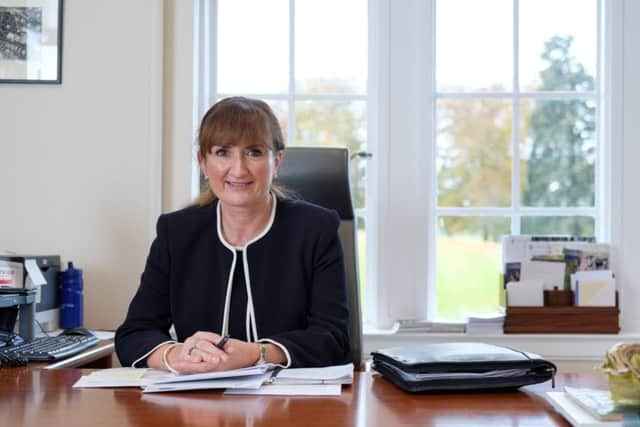Elaine Logan: Don't bash private schools '“ they play a vital part in Scottish education


The Scottish Government’s intention to implement the Barclay Report, which would see business rates relief removed from independent schools, clearly indicates that it endorses the latter.
This policy, however, is highly unlikely to help the very children that it wishes to support; namely, pupils in state schools.
Advertisement
Hide AdAdvertisement
Hide AdAt a time when government spending on education has been falling in real terms, the maintained sector needs all the help it can get. By forcing up independent school fees, however, more children will be pushed back into the state system and the financial pressure on the sector will simply grow.


Many would argue that independent schools, particularly boarding schools, such as Glenalmond, are full of ‘toffs’ and the super-rich, and could easily absorb the increase in business rates.
While there is no denying that there is a large number of children from wealthy families in these schools, rising costs, combined with the delayed effects of the economic downturn, mean that the sector as a whole is facing considerable challenges. Surprising as it may be to some, private schools in this country do not make huge profits, and the recent closure of Beaconhurst School is a stark reminder of that.
In fact, the vast majority of independent school parents are not members of the landed gentry, nor do they fly around in private jets – most of them simply value the benefits of education very highly, and many are prepared to make considerable sacrifices in order to provide that for their children.
It is often presumed that people from ‘disadvantaged’ backgrounds are, by definition, totally opposed to private education.
This assumption is incorrect, and it ignores the fact that many low-income parents are delighted to take up the offer of a place at an independent school, if one is made possible through a means-tested bursary.
In 2015, a young man called Ryan was awarded a sixth form scholarship at Glenalmond, through the Royal National Children’s Springboard Foundation, the UK’s largest boarding school bursary charity which gives life-changing opportunities to vulnerable and disadvantaged children. During his two years with us, Ryan made the most of every opportunity available to him, and he is now studying journalism in London. Recently, he was interviewed by the Sunday Times.
When the interviewer suggested that it must have been hard for someone from his background to fit into an environment like ours, Ryan surprised him by speaking passionately about his time at the school.
Advertisement
Hide AdAdvertisement
Hide AdHe said that he was given a very warm welcome, and that the experience had not only broadened his horizons, but had changed his whole life. Ryan’s story is by no means unique – all of the independent schools in Scotland have provided life-changing opportunities for young people.
My own background is not dissimilar to Ryan’s, but my move into independent education came a little later.
I was brought up in a working class family in the former mining community of Tranent, in East Lothian. My father, despite having left school himself at 14, never lost his passion for learning, and when he was nearly 40 he embarked on an Open University degree.
I have fond memories of sharing the kitchen table with him in the evenings. While I did my homework, he did research for his thesis, which was on the suffragette movement in Scotland.
He refused to accept that my horizons should be limited by class or gender, and he was determined that I should stay on for the sixth year.
After university and teacher training, I went on to teach in both the state and independent schools. During my career, I have witnessed the distrust that exists between the sectors.
In extreme cases, this can take the form of class hatred on the one side, and downright snobbery on the other, but usually it is based on ingrained prejudice or ignorance.
I have also learned that neither sector has a monopoly when it comes to best practice.
Advertisement
Hide AdAdvertisement
Hide AdAt Glenalmond, we pride ourselves on the excellent quality of our teaching, but some of the best teachers I have known are in the state system – they inspire children on a daily basis, often in large, mixed-ability classes.
In the last few years, I have been aware of more teachers moving between state and independent schools.
This must be a positive thing, because it is only by breaking down barriers between the sectors, sharing ideas, and creating partnerships, that we will achieve the best outcomes for Scottish children, whatever their background.
Elaine Logan, warden, Glenalmond College